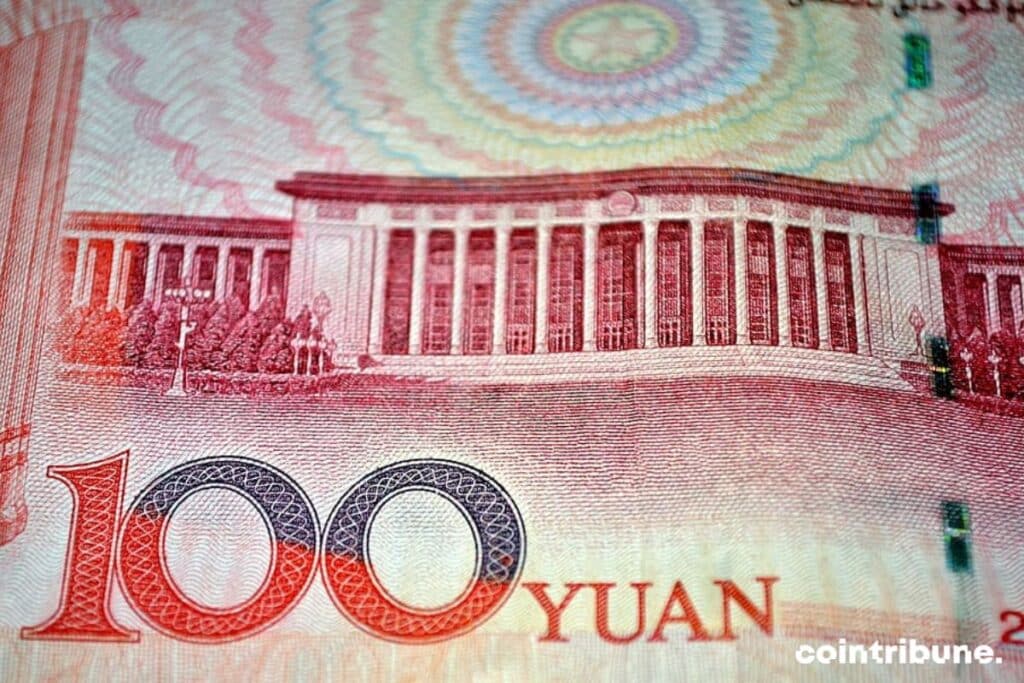Chinese Yuan overtakes US dollar as most-used currency in China's cross-border transactions for the first time in history.
— Genevieve Roch-Decter, CFA (@GRDecter) April 26, 2023
Yuan-share rose to a record high of 48%, UP from nearly zero in 2010.
U.S-share declined to 47%, DOWN from 83% over the same period.
Wow. pic.twitter.com/Lm3Rygpm45
A
A
Argentina ditches the dollar for the yuan
Fri 28 Apr 2023 ▪
4
min read ▪ by
Getting informed
▪
Payment
Argentina will start paying for its Chinese imports in yuan instead of dollars. This decision aims to relieve the country’s dwindling dollar reserves.

Dollar, no mas
The goal is to reduce dollar outflows, said Argentine Economy Minister Sergio Massa. This was while a meeting with Chinese Ambassador Zou Xiaoli and companies from various sectors.
This decision comes as the South American nation’s dollar reserves have dried up due to a historic drought that has hurt agricultural exports.
The yuan comes from a currency swap equivalent to $5 billion. That was carried out last November by the Chinese and Argentine central banks.
At the time, Argentine President Alberto Fernandez also joined the new Silk Road to receive over $23 billion in Chinese investments.
Just last week, the Argentine Investment Bank (BICE) and the China Development Bank (CDB) concluded an agreement equivalent to $150 million.
“The financing agreement reached with the CDB is very important. Agreements with international agencies allow us to offer loans to Argentine SMEs on very favorable terms,” said BICE President Pablo Garcia.
In short, China is replacing the IMF, to which Argentina owes over $40 billion. And the fact that the cure imposed by the IMF is not working.
Knowing that many Argentines call for defaulting on this debt inherited from the military dictatorship…
China and Brazil coming to Argentina’s aid
The Brazilian president recently criticized the IMF from Beijing, denouncing the loan conditions granted to Argentina:
“No bank can be suffocating the economies of countries as the IMF is doing now in Argentina or as they did with Brazil for so long and with all the third world countries.”
“Why couldn’t a bank like the BRICS have a currency to finance trade relations between Brazil and China, between Brazil and other countries? It’s difficult because we’re not used to it. Everyone depends on a single currency, the dollar.”
Thus, it is very likely that, like Brasília, Buenos Aires will soon start using the Chinese CIPS network instead of the SWIFT network.
This connection will probably be formalized when the Argentines join the “BRICS Bank,” the New Development Bank (NDB). The latter is based in Shanghai and chaired by Dilma Rousseff, the former Brazilian president.
It is an open secret that countries need to stop trading in dollars to become members of the BRICS bank (and benefit from its loans).
It is worth noting that the yuan has become the top currency for exchange between China and the rest of the world. The yuan accounts for 48% of exchanges, compared to 47% for the dollar:
Yuan-share rose to a record high of 48%, UP from nearly zero in 2010.
U.S-share declined to 47%, DOWN from 83% over the same period. Wow.”
Times are changing. And while Russia keeps NATO in check, China is working to de-dollarize international trade.
But as we wrote in Geopolitics & Bitcoin – Week 17, the yuan will not serve as a reserve currency. The world needs a new reserve currency, and bitcoin is in the pole position.
Maximize your Cointribune experience with our "Read to Earn" program! For every article you read, earn points and access exclusive rewards. Sign up now and start earning benefits.
A
A
The Cointribune editorial team unites its voices to address topics related to cryptocurrencies, investment, the metaverse, and NFTs, while striving to answer your questions as best as possible.
DISCLAIMER
The views, thoughts, and opinions expressed in this article belong solely to the author, and should not be taken as investment advice. Do your own research before taking any investment decisions.